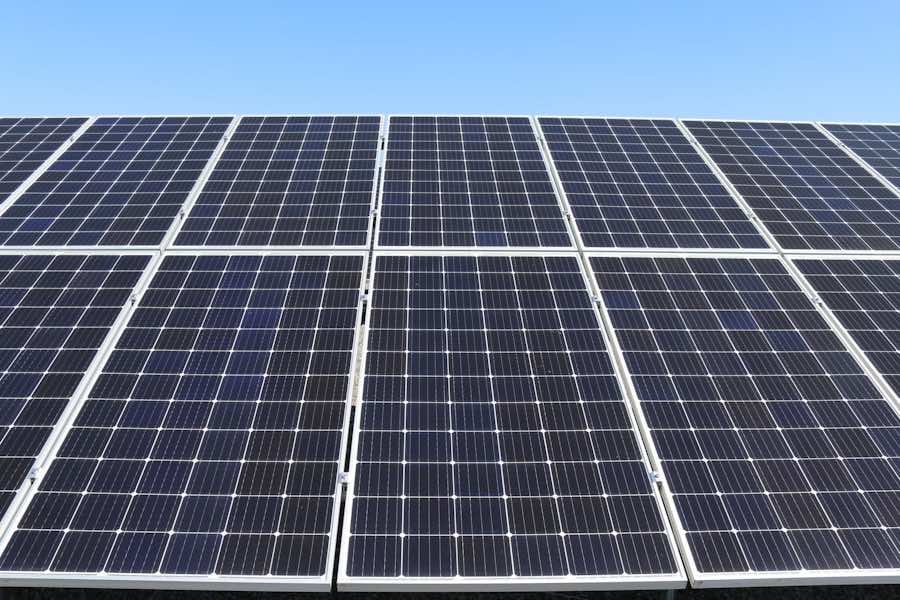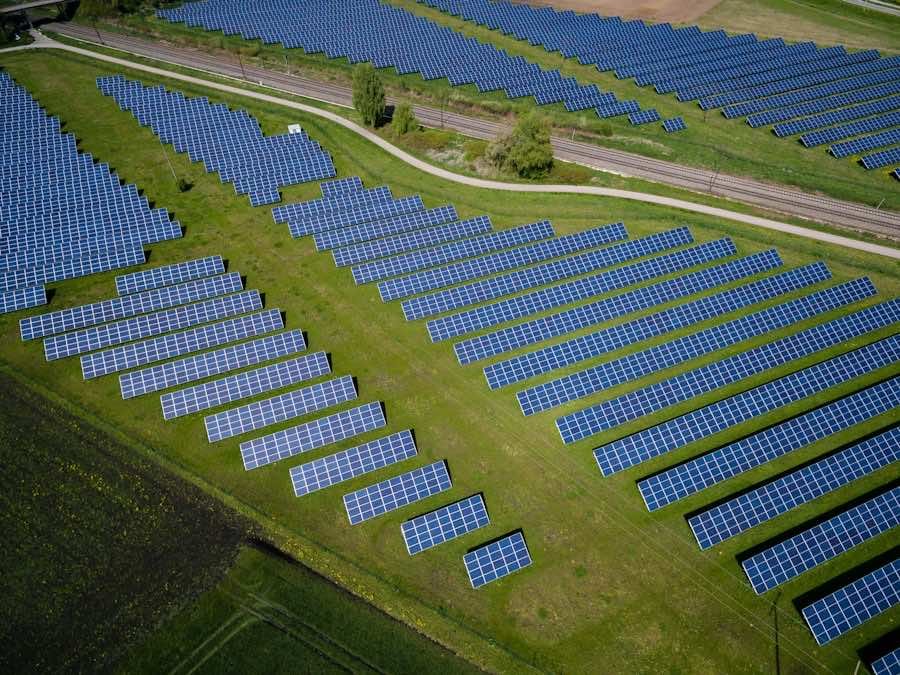The transition from fossil fuels to renewable energy sources has become a focal point in the global effort to combat climate change and promote sustainable development. Renewable energy supply chains are integral to this transition, encompassing the entire process from the extraction of raw materials to the delivery of energy to end-users. These supply chains are complex networks that involve various stakeholders, including manufacturers, suppliers, distributors, and consumers.
As the demand for clean energy continues to rise, understanding the intricacies of these supply chains is essential for ensuring efficiency, sustainability, and resilience in the energy sector. Renewable energy encompasses a variety of sources, including solar, wind, hydroelectric, geothermal, and biomass. Each of these sources has its own unique supply chain dynamics, influenced by factors such as technology, geography, and regulatory frameworks.
For instance, the supply chain for solar energy involves the production of photovoltaic cells, which requires raw materials like silicon and rare earth metals. In contrast, wind energy supply chains focus on the manufacturing and installation of turbines, which necessitate a different set of materials and logistical considerations. As countries strive to meet their renewable energy targets, the optimisation of these supply chains will play a pivotal role in achieving energy security and reducing greenhouse gas emissions.
Summary
- Renewable energy supply chains play a crucial role in the transition towards a sustainable future.
- Components of renewable energy supply chains include sourcing raw materials, manufacturing, transportation, and installation.
- Challenges in renewable energy supply chains include supply chain complexity, cost, and regulatory issues, while opportunities lie in innovation and collaboration.
- Sustainable practices in renewable energy supply chains involve reducing carbon footprint, promoting ethical sourcing, and investing in renewable energy technologies.
- The global impact of renewable energy supply chains is significant, contributing to reduced greenhouse gas emissions and energy security.
The Importance of Renewable Energy Supply Chains
The significance of renewable energy supply chains cannot be overstated. They are crucial for facilitating the transition to a low-carbon economy and ensuring that renewable energy technologies are deployed effectively and efficiently. A well-structured supply chain can enhance the reliability of energy production, reduce costs, and improve access to clean energy for communities worldwide.
Furthermore, as governments and organisations commit to ambitious climate goals, the demand for renewable energy solutions is expected to surge, making robust supply chains even more vital. Moreover, renewable energy supply chains contribute to job creation and economic growth. The renewable energy sector has proven to be a significant source of employment opportunities across various skill levels.
For example, the International Renewable Energy Agency (IRENA) reported that in 2020 alone, the renewable energy sector employed over 11 million people globally. This figure is projected to grow as investments in renewable technologies increase. By fostering local supply chains and manufacturing capabilities, countries can stimulate their economies while simultaneously addressing environmental concerns.
Components of Renewable Energy Supply Chains

The components of renewable energy supply chains can be broadly categorised into several key stages: raw material extraction, manufacturing, distribution, installation, and maintenance. Each stage plays a critical role in ensuring that renewable energy technologies are produced and delivered efficiently. The first stage involves sourcing raw materials necessary for the production of renewable energy systems.
For instance, solar panels require silicon, silver, and other materials, while wind turbines depend on steel and rare earth elements. Manufacturing is the next crucial component, where raw materials are transformed into finished products. This stage often involves complex processes that require advanced technology and skilled labour.
For example, the production of photovoltaic cells involves intricate processes such as doping silicon with impurities to create p-n junctions that enable electricity generation. Following manufacturing, distribution logistics come into play. This stage encompasses the transportation of finished products from factories to installation sites, which can be challenging due to geographical constraints and infrastructure limitations.
Installation is another vital component of the supply chain. It requires skilled technicians who can ensure that renewable energy systems are set up correctly and safely. The final stage involves maintenance and support services that ensure the longevity and efficiency of renewable energy systems.
Regular maintenance is essential for optimising performance and minimising downtime, which can significantly impact energy production.
Challenges and Opportunities in Renewable Energy Supply Chains
Despite their importance, renewable energy supply chains face numerous challenges that can hinder their effectiveness. One significant challenge is the volatility of raw material prices. The demand for materials such as lithium for batteries or rare earth elements for wind turbines can fluctuate dramatically based on market conditions and geopolitical factors.
This volatility can lead to increased costs for manufacturers and ultimately affect the pricing of renewable energy technologies. Another challenge lies in the complexity of logistics and distribution networks. Many renewable energy projects are located in remote areas where infrastructure may be lacking or underdeveloped.
Transporting large components like wind turbine blades or solar panels can be logistically challenging and costly. Additionally, regulatory hurdles can complicate the movement of goods across borders, further exacerbating supply chain inefficiencies. However, these challenges also present opportunities for innovation and improvement within renewable energy supply chains.
For instance, advancements in recycling technologies can help mitigate raw material shortages by recovering valuable materials from end-of-life products. Companies are increasingly investing in circular economy practices that promote resource efficiency and waste reduction. Furthermore, digital technologies such as blockchain and artificial intelligence are being explored to enhance transparency and traceability within supply chains, enabling better decision-making and risk management.
Sustainable Practices in Renewable Energy Supply Chains
Sustainability is a core principle guiding the development of renewable energy supply chains. As the world shifts towards cleaner energy sources, it is imperative that these supply chains operate in an environmentally responsible manner. Sustainable practices encompass various strategies aimed at minimising environmental impact while maximising social benefits.
One approach is the adoption of life cycle assessment (LCA) methodologies to evaluate the environmental impacts associated with each stage of the supply chain. By assessing factors such as carbon emissions, water usage, and resource depletion throughout the life cycle of a product, companies can identify areas for improvement and implement more sustainable practices. For example, manufacturers may choose to source materials from suppliers that adhere to strict environmental standards or invest in cleaner production technologies.
Another sustainable practice involves engaging with local communities throughout the supply chain process. This engagement can take many forms, including providing training and employment opportunities for local workers or collaborating with indigenous communities to ensure that their rights and interests are respected. By fostering positive relationships with stakeholders, companies can enhance their social licence to operate while contributing to local economic development.
Global Impact of Renewable Energy Supply Chains

The global impact of renewable energy supply chains extends far beyond national borders. As countries strive to meet their climate commitments under international agreements such as the Paris Agreement, the interconnectedness of global supply chains becomes increasingly apparent. The transition to renewable energy has the potential to reshape economies worldwide by reducing dependence on fossil fuels and promoting sustainable development.
For instance, countries rich in natural resources required for renewable technologies can leverage their assets to become key players in the global market. Nations like China have already established themselves as leaders in solar panel manufacturing by capitalising on their abundant resources and investment in technology. This shift not only creates economic opportunities but also encourages other countries to invest in their own renewable energy capabilities.
Moreover, renewable energy supply chains contribute to global efforts to reduce greenhouse gas emissions. By facilitating the deployment of clean energy technologies at scale, these supply chains play a crucial role in mitigating climate change impacts. The International Energy Agency (IEA) estimates that achieving net-zero emissions by 2050 will require a significant increase in renewable energy capacity globally.
This necessitates robust supply chains capable of supporting rapid deployment while ensuring sustainability.
Future Trends in Renewable Energy Supply Chains
As the renewable energy landscape continues to evolve, several trends are emerging that will shape the future of supply chains within this sector. One notable trend is the increasing emphasis on localisation and regionalisation of supply chains. In response to disruptions caused by global events such as the COVID-19 pandemic or geopolitical tensions, many companies are reevaluating their sourcing strategies to reduce reliance on distant suppliers.
This shift towards local sourcing not only enhances resilience but also supports local economies. Another trend is the integration of advanced technologies into renewable energy supply chains. Innovations such as artificial intelligence (AI), machine learning (ML), and Internet of Things (IoT) devices are being utilised to optimise operations and improve efficiency across various stages of the supply chain.
For example, predictive analytics can help companies anticipate demand fluctuations or identify potential bottlenecks in logistics. Additionally, there is a growing focus on circular economy principles within renewable energy supply chains. Companies are increasingly recognising the importance of designing products for longevity and recyclability while implementing take-back schemes for end-of-life products.
This shift not only reduces waste but also conserves valuable resources needed for future production.
The Role of Renewable Energy Supply Chains in a Sustainable Future
Renewable energy supply chains are fundamental to achieving a sustainable future characterised by clean energy access for all. As nations grapple with climate change challenges and seek to transition away from fossil fuels, these supply chains will play an essential role in facilitating this transformation. By understanding their complexities and addressing associated challenges through innovative practices and technologies, stakeholders can enhance efficiency while promoting sustainability.
The future of renewable energy supply chains holds immense potential for driving economic growth while safeguarding our planet’s resources. As we move forward into an era defined by sustainability imperatives, it is crucial that all actors within these supply chains collaborate effectively to realise shared goals—ensuring that clean energy becomes not just an aspiration but a reality for generations to come.
In a recent article on identifying and creating new markets, a new strategy for a global leader was discussed in depth. This article delves into the importance of market research and innovation in order to stay ahead in the competitive business landscape. It highlights the need for companies to constantly evolve and adapt to changing market trends in order to remain successful. This is particularly relevant to the renewable energy supply chains sector, as companies must constantly innovate and find new markets in order to grow and thrive.
FAQs
What is renewable energy supply chain?
The renewable energy supply chain refers to the network of suppliers, manufacturers, distributors, and retailers involved in the production and delivery of renewable energy technologies and resources, such as solar, wind, hydro, and biomass energy.
What are the components of renewable energy supply chains?
The components of renewable energy supply chains include raw materials extraction, manufacturing of renewable energy technologies, transportation and logistics, installation and maintenance, and end-of-life recycling or disposal.
What are the benefits of renewable energy supply chains?
Renewable energy supply chains contribute to reducing greenhouse gas emissions, decreasing reliance on fossil fuels, creating jobs, and promoting sustainable development. They also help in diversifying energy sources and increasing energy security.
What are some examples of renewable energy supply chain technologies?
Examples of renewable energy supply chain technologies include solar panels, wind turbines, hydroelectric generators, biomass boilers, and geothermal heat pumps.
How does the renewable energy supply chain differ from the traditional energy supply chain?
The renewable energy supply chain differs from the traditional energy supply chain in terms of the types of technologies, raw materials, manufacturing processes, and environmental impacts. Renewable energy supply chains focus on harnessing natural resources that are replenished, whereas traditional energy supply chains rely on finite fossil fuels.
